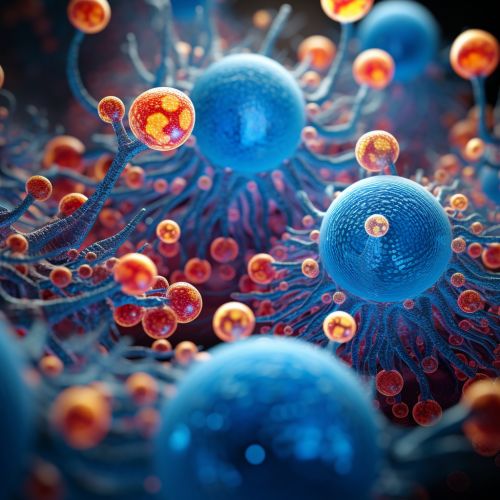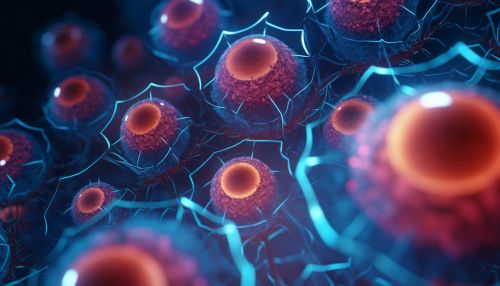Cell differentiation
Introduction
Cell differentiation is a biological process where an unspecialized cell undergoes changes to become a specialized cell type with distinct functions. This process is crucial for the development, growth, and maintenance of multicellular organisms. It involves the expression of specific genes that give the cell its functional properties.
Process of Cell Differentiation
Cell differentiation begins with a stem cell, which is an undifferentiated cell that has the potential to become any type of cell in the body. Stem cells can divide and produce more stem cells, or they can differentiate into specialized cells through a process known as cell fate determination.
Cell Fate Determination
Cell fate determination is the process by which a cell becomes committed to a specific developmental path. This commitment is usually irreversible and is determined by a combination of intrinsic and extrinsic factors. Intrinsic factors include the cell's genetic makeup and epigenetic modifications, while extrinsic factors include signals from the cell's environment.
Gene Expression in Cell Differentiation
The process of cell differentiation is largely controlled by the regulation of gene expression. Differentiation involves the activation of certain genes and the suppression of others. This selective gene expression gives rise to the specific characteristics of each cell type.
Types of Cell Differentiation
There are several types of cell differentiation, including embryonic differentiation, adult cell differentiation, and induced pluripotent stem cell differentiation.
Embryonic Differentiation
Embryonic differentiation occurs during the development of an embryo from a single fertilized egg cell, or zygote. The zygote undergoes several rounds of cell division to form a blastocyst, a hollow ball of cells. The cells of the blastocyst then differentiate into the various cell types that make up the body.
Adult Cell Differentiation
Adult cell differentiation occurs in adult organisms for tissue repair and maintenance. Adult stem cells, found in various tissues throughout the body, can divide and differentiate into the specialized cells of the tissue in which they reside.
Induced Pluripotent Stem Cell Differentiation
Induced pluripotent stem cells (iPSCs) are adult cells that have been genetically reprogrammed to an embryonic stem cell-like state. These cells can then differentiate into any cell type, providing a potential source of cells for regenerative medicine.
Role in Development and Disease
Cell differentiation plays a crucial role in the development of multicellular organisms. However, abnormalities in cell differentiation can lead to diseases such as cancer, where cells lose their differentiated state and begin to proliferate uncontrollably.
See Also


